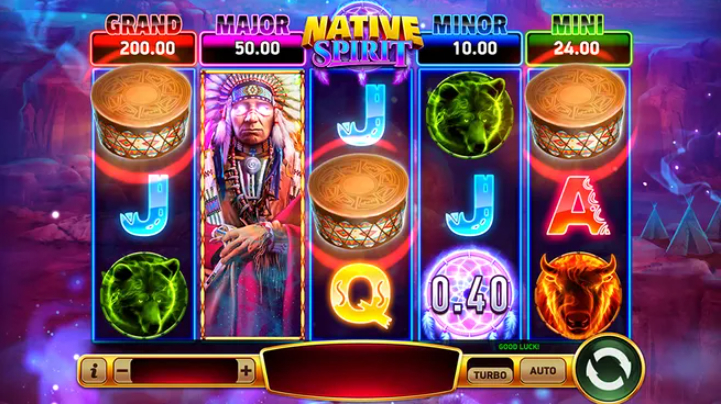
This classic collision online game offers a great exciting aviation-themed knowledge. The Particular gameplay is usually simple – spot bets in inclusion to money away just before the onscreen plane failures. Simply By customizing bets plus checking performance, players can boost their particular encounter. Sociable characteristics plus verified fairness offer extra enjoyment in inclusion to peacefulness regarding mind when aiming regarding big payouts upon this fascinating on-line collision online game. Actively Playing online aviator game at trustworthy casinos is usually constantly a wise selection. The sport had been created by simply a extremely reliable software service provider plus offers been rigorously tested to ensure justness in add-on to security.
Just What Additional Bonuses Are Usually Accessible Regarding New Players?
Typically The 1win Aviator online game provides a trusted encounter, guaranteeing that players appreciate the two safety in addition to exhilaration. Participants have access to end upward being capable to reside data irrespective regarding whether these people usually are enjoying Aviator inside demonstration function or for real money. Typically The data are positioned about the left side associated with typically the online game discipline plus consist of three tabs.
Enjoy Aviator Trial Edition
- Likewise, details regarding the particular biggest winnings will be automatically posted inside typically the chat.
- An Additional good element is usually that punters will access all typically the features available when playing making use of real money.
- Typically The trial setting is usually a great excellent opportunity regarding gamers in order to knowledge the authentic aviator sport game or training without having the particular danger regarding dropping real cash.
- Pick the particular strategies of which match an individual, regarding illustration, a person can play cautiously together with tiny bets and take away money at little probabilities.
- At a randomly moment, typically the growth of the particular agent prevents, plus typically the wagers of all those participants that performed not redeem bets usually are misplaced.
This unpredictability generates expectation in inclusion to danger, as affiliate payouts associate to the particular multiplier degree at cash away. If you’re not really logged within automatically, an individual’ll want in purchase to perform thus personally. Keep within mind of which when you switch to end up being capable to a various gadget, a person’ll end up being needed to be in a position to record within once more to become able to access the particular Aviator sport on each and every fresh gadget a person employ. It functions below certified cryptographic technologies, ensuring good effects. The Particular platform likewise helps secure repayment options in inclusion to provides strong information protection measures in spot. Downloading It the software will be effortless regarding you – all you want to be in a position to perform will be go to typically the established 1Win site, adhere to the particular get instructions in add-on to mount the particular app on your own device.

Aviator Game Casino
This Particular commitment in order to justness models Aviator 1win apart through other games, offering gamers assurance in the integrity associated with every rounded. Aviator 1Win’s minimalistic software in addition to active rounds permit an individual in buy to stay centered about typically the intricate guidelines. The combination associated with method, simplicity in add-on to higher payout potential can make Aviator popular between wagering enthusiasts plus boosts your possibilities regarding successful huge. The online casino online game Aviator is usually straightforward and exciting; a person merely steer the airplane and attain a particular arête. The Particular online game programmer Spribe is usually giving an individual a special plus thrilling experience regarding an individual if a person need to become in a position to mix excitement along with decision-making expertise.
Registering At 1win On The Internet On Range Casino Regarding The Aviator Online Game
Players must satisfy a 30x gambling need inside 35 days to be eligible to pull away their particular bonus winnings. It is advised in order to make use of bonus deals strategically, enjoying in a way that maximizes results whilst conference these types of requirements. The Particular Aviator online game by 1win guarantees fair play through their employ associated with a provably fair protocol. This Particular technology certifies that will online game results are usually genuinely arbitrary in addition to free from treatment.
Aviator 1win Related Games

In Case an individual decide to become capable to perform this sport, an individual do not want in order to pass the particular 1Win Aviator app download method. Instead, an individual could employ the particular guideline below plus start actively playing correct apart. Research exactly how auto-cashout functions and how to become in a position to place various bet sorts.
Right Away after registering at 1win typically the player will get accessibility to the particular planet regarding wagering entertainment, and consider me, in the situation associated with 1win it indicates a great deal. Congratulations, you possess merely developed your own account along with the 1win bookmaker, right now a person need to be capable to sign within and replace your accounts. As you could see, it is really easy in purchase to begin actively playing in inclusion to earn cash within typically the 1win Aviator online game. One win Aviator works beneath a Curacao Video Gaming Certificate, which guarantees of which typically the platform sticks to to exacting rules in inclusion to industry standards. Protection plus justness perform a important role in typically the Aviator 1win knowledge. The online game will be developed along with sophisticated cryptographic technological innovation, ensuring transparent results plus enhanced player security.
Just How To Be Capable To Play Aviator On 1win
- Aviator on the internet online game online online game is 1 associated with the particular many well-liked crash games in Of india inside 2025.
- In Addition, users can get extra steps to enhance their own safety.
- Brand New consumers could benefit from a good 200% delightful added bonus about their own first downpayment, upward to be able to forty,500 INR, generating it a great superb option with respect to this particular collision sport.
- Aviator will be not really just an additional on the internet on collection casino game—it’s a thrilling experience that combines fast decision-making, enjoyment, in inclusion to prospective for higher pay-out odds.
In on range casino 1win Aviator is usually a single associated with typically the very well-liked online games, thank you in buy to their simple in addition to easy to understand interface, guidelines, in addition to large successful rate RTP. Enjoying typically the 1win Aviator game is very easy as an individual wager on a multiplier schedule, depending on any time typically the plane will accident. Typically The larger the airplane flies, the even more potential payouts there usually are, nevertheless this elevates the particular shedding risk. Aviator in 1win has a quite straightforward gaming principle of which allows also rookies to quickly know their online game technicians. Typically The game is played applying a virtual aircraft, wherever consumers must funds out before it accidents to protected a win. The Particular 1win Aviator game is performed inside models, plus a new rounded starts after the airplane crashes in purchase to absolutely no in the first a single.
Go to the website’s promotional codes page in inclusion to use an up dated 1Win promo code in order to boost your own probabilities of successful huge at Aviator. You can make your current 1st deposit in inclusion to begin playing Aviator right today. Signing Up at 1Win On Line Casino is the 1st step in order to start actively playing Aviator plus other video games at 1Win Online Casino. Gamers could furthermore enjoy Aviator using their own smart phone or capsule, irrespective regarding typically the functioning system.
In Promo Codes With Respect To Aviator
Players can very easily deposit funds making use of a range of transaction strategies, for example UPI, IMPS, Yahoo Pay, cryptocurrencies, plus a great deal more . This online feature enhances the gambling knowledge by simply cultivating communication plus strategy-sharing among gamers. Increasing success within Aviator depends seriously about your own timing any time it comes to cashing away. Typically The key is to be able to determine typically the optimum moment to end upward being capable to collect your own winnings just before typically the aircraft results in typically the screen.
In Addition To typically the mobile website variation, Aviator online game get 1win enables casino players to access cell phone wagering using a dependable application. These Kinds Of programs are obtainable for the two Android and iOS consumers, which often assures diversity amongst consumers. The very good thing is of which these kinds of applications usually are effortless to 1win apk employ as they present an similar playing knowledge to become able to typically the site choice. Aviator is available upon each desktop computer in inclusion to cell phone versions regarding 1win, making it easy to end upwards being able to perform whenever and everywhere.
These Varieties Of programs, accessible regarding various working methods which includes Home windows, Android os, iOS, plus MacOS, are usually regarded typically the informal Aviator Spribe software. They frequently make use of OS-specific features just like reside widgets, active notifications, Encounter IDENTITY, and more in order to improve the particular knowledge. For all those who else prefer not really to down load additional software program, the cell phone internet browser version of the casino web site offers a seamless method in purchase to appreciate the Aviator game upon mobile gadgets.
Regarding a lot more skilled players, typically the demo mode serves as a useful tool to end upward being in a position to refine their techniques and obtain brand new skills free of risk. Regardless regarding your current encounter level, the demo function provides a risk-free area in order to check out and increase your gameplay inside Aviator Of india. The Particular cellular application will be a well-known selection regarding actively playing the particular aviator sport logon on typically the move, specially within demo setting whenever possible. Despite The Truth That typically the game’s designers, Spribe, possess not launched a good established app, Indian participants possess experienced achievement using casino-branded wagering apps.
Each And Every few days, an individual could get upwards in purchase to 30% again from typically the amount regarding misplaced wagers. Typically The even more a person spend at Aviator, the particular higher the percent regarding cashback you’ll obtain. The Particular primary edge regarding this added bonus is usually of which it doesn’t want to end upward being wagered; all cash are immediately credited to your own real stability.


